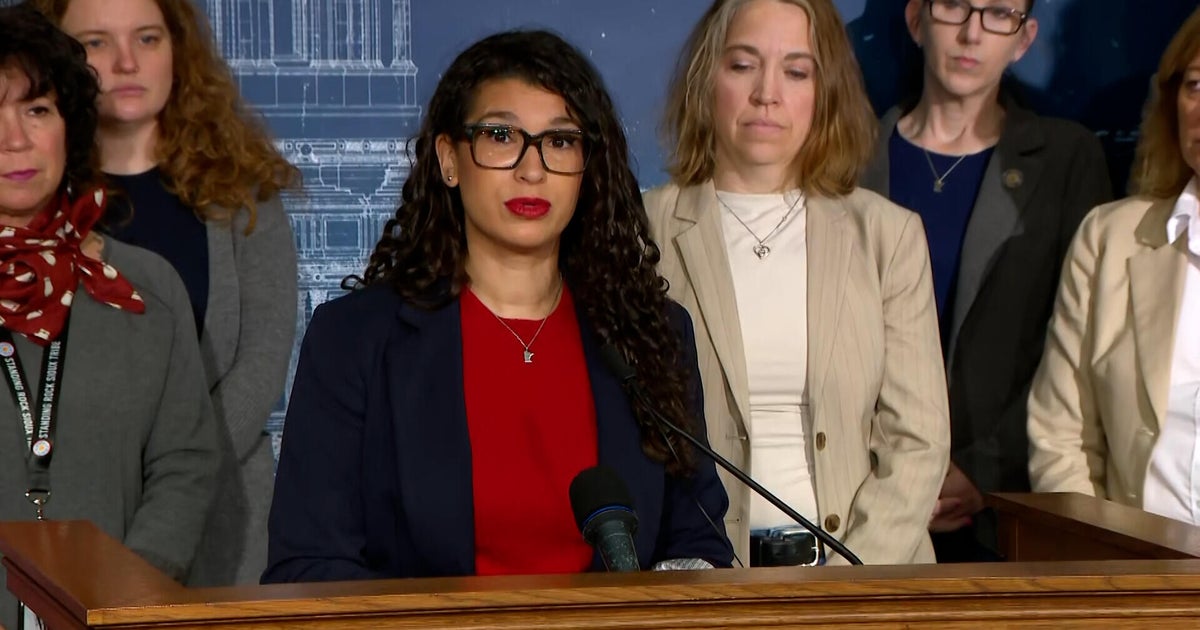Five questions for Robert Mueller from a legal scholar
Former special counsel Robert Mueller is testifying before both the House Judiciary and Intelligence Committees Wednesday on the findings of his investigation into Russian interference in the 2016 presidential election.
Democrats are expected to zero in on five incidents included in his report that they believe would have led to obstruction of justice charges for anyone who was not a sitting president. Republicans will focus on asking Mueller about what they see as the bottom line — that his investigation did not find evidence of collusion between the Trump campaign and Russia.
Ahead of Wednesday's testimony, we asked CBS News contributor and George Washington University law professor Jonathan Turley what five questions he would ask Mueller. Here's what he came up with.
Why not consult the Justice Department's Office of Legal Counsel about indicting a sitting president, since there was obvious disagreement over past memos?
Relevant page in Mueller report: Vol. 2 p. 1.
Your report references the policy of the Justice Department's Office of Legal Counsel (OLC) against the indictment of a sitting president as stated in memos during the Nixon and Clinton administrations. You then decline to reach a conclusion on the allegations of obstruction of justice. However, many have disagreed with your reliance on those memos, which state a policy not to indict a sitting president. The memos say nothing about a special counsel reaching a conclusion on whether there are credible criminal allegations against a president. Indeed, the memos speak to the practical problems of a president facing criminal proceedings and nothing about a president facing criminal allegations. Since the OLC renders judgments on such questions, why did you not submit the question to the OLC since that office is the source of the memos (and you clearly disagreed on the meaning with the attorney general and deputy attorney general)?
Do you believe the attorney general and deputy attorney general violated DOJ policy by reaching a conclusion on obstruction?
Relevant page in Mueller report: Vol. 2 p.1
Your report does not state that there was any express policy barring a special counsel from reaching a conclusion on a crime like obstruction and both Attorney General William Barr and Deputy Attorney General Rod Rosenstein reportedly encouraged you to reach a conclusion. They ultimately did precisely what you said could not be done in reaching a conclusion that there was no compelling criminal allegation of obstruction. These were not just your immediate superiors but also the ultimate authority at the department on its policies. Given the ambiguity of the memos and clear judgment of your superiors that conclusions could be reached, why did so still refuse and does that mean that you believe the attorney general and deputy attorney general violated DOJ policy?
Is there any obstruction if Trump only ordered his White House counsel to tell the Justice Department that you should be removed but left the decision to others?
Relevant page in Mueller report: Vol. 2 p. 9
The critical part of the report that raises possible obstruction of justice by President Trump concerns the alleged order given to White House Counsel Don McGahn to tell Deputy Attorney General Rod Rosenstein to fire you. However, your report does not quote McGahn in saying that Trump actually told him to order Rosenstein to fire Mueller. Instead it says, "On June 17, 2017, the President called McGahn at home and directed him to call the Acting Attorney General and say that the Special Counsel had conflicts of interest and must be removed." That raises a serious question of intent. Any target of an investigation, including a president, is allowed to raise a concern over conflicts of interest. Various outside experts raise your conflicts publicly, including your interview with Mr. Trump after the firing of former Director James Comey. If Mr. Trump wanted McGahn to tell Rosenstein that he believed that you had a conflict and should be removed, that would not be unlawful or improper. So long as Mr. Trump was leaving it up to Rosenstein and took no further steps, how can that be an act of obstruction?
Do you disagree with Barr and Rosenstein's conclusion that questions about Trump's intent would undermine a potential obstruction prosecution?
Relevant page in Mueller report: Vol. 2, p. 6
Obstruction of justice requires a showing of intentional interference or attempted interference with an ongoing investigation with corrupt intent. Your report, however, cites extensive evidence of Mr. Trump's intent that is separate from any desire to influence or obstruct the investigation. For example, you cite various witnesses saying that Mr. Trump was motivated by a belief that the allegations of Russian collusion were undermining the legitimacy of his election. Both Barr and Rosenstein concluded that such evidence in your report would seriously undermine any prosecution for obstruction. Since you have to prove intent beyond a reasonable doubt, do you disagree with your two former superiors that the countervailing evidence of intent would undermine such a prosecution?
Your report refuses to accuse Trump of obstruction because of DOJ policy, but you also write you would clear him if you could. Which is it?
Relevant page in Mueller report: Vol. 2, p. 2, 8
Your report states that "if we had confidence after a thorough investigation of the facts that the president clearly did not commit obstruction of justice, we would so state." Yet, you also claim it would be inappropriate to accuse Mr. Trump of criminal acts given DOJ policies and your view that he would not be able to defend himself in a trial. So which is it? Moreover, don't you do precisely that, with your statement that you could not clear him of a crime?



